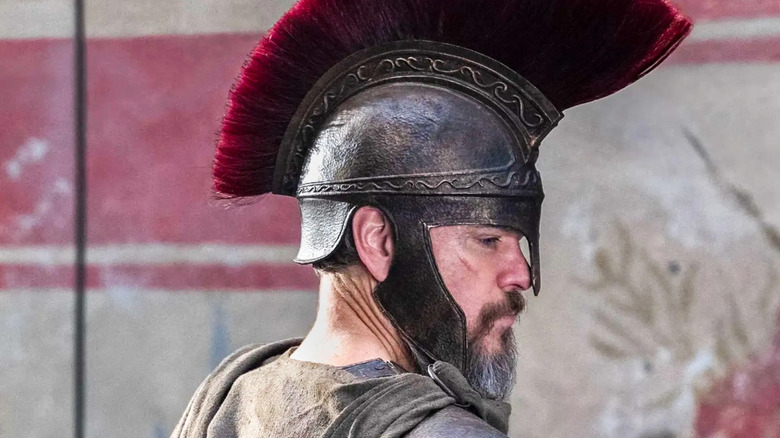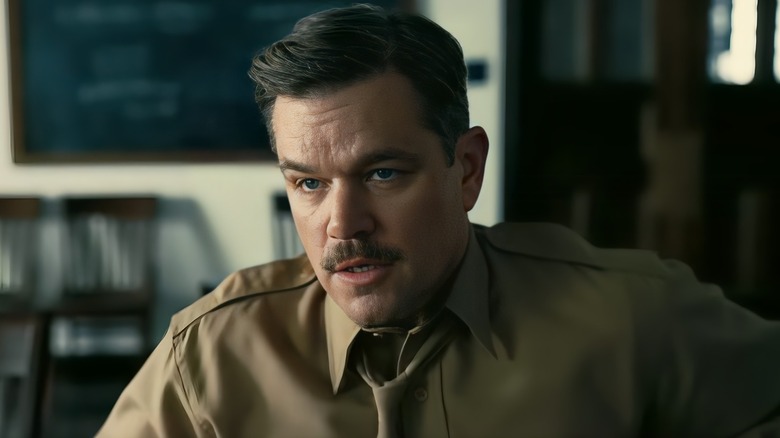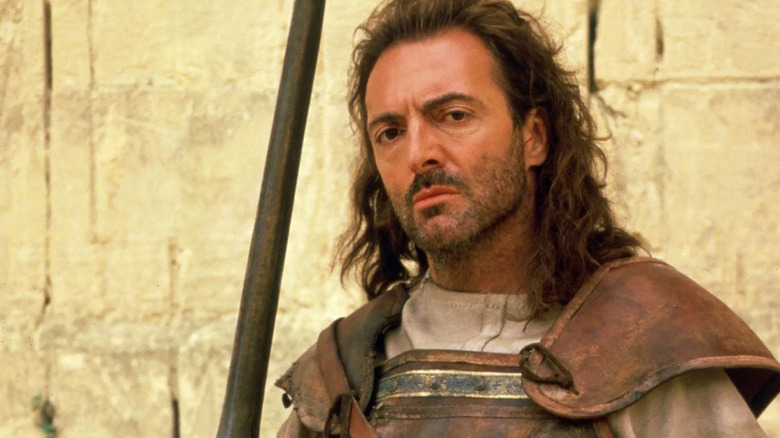The Odyssey Could Directly Tackle The Biggest Christopher Nolan Criticism
The biggest criticism of Christopher Nolan's filmography has been his dodgy use of sound. When "The Dark Knight Rises" was released in 2012, many complained about how they couldn't understand the perpetually-masked Bane (Tom Hardy). It didn't help that Hardy affected a strange accent and voice for the role. The same was true of "Tenet," a film that mixed its dialogue in a way to make it incomprehensible. Indeed, Nolan's sound mixing is so consistently terrible, other directors have called him out.
The second-biggest criticism of Nolan, however — and one that the director could potentially address in his upcoming 2026 adaptation of "The Odyssey" — is that his films are assertively male. None of his films to date have had a female protagonist, and many of them feature mostly-male ensembles. "Dunkirk" was largely about male soldiers. There was one notable female character in "Inception," but she was played by a pre-transition Elliot Page. At least "Oppenheimer" featured two notable women in the middle of all the male scientists, although the degree to which those characters were served by the script is debatable.
"The Odyssey," too, is about a male protagonist, Odysseus (Matt Damon), and it also involves a team of burly men — in this case, all the sailors on board Odysseus' ship — but it's also full of female characters, mostly notably Penelope (possibly Anne Hathaway), Odysseus' wife. Penelope, as we all know, waited for Odysseus to return from the Trojan War for 20 years. All the while, she had to fend off the affections of an army of boorish, live-in suitors. Odysseus, meanwhile, was tempted by a nymph named Calypso, lured by a flock of Sirens, and faced other hardships on his way home. He is, in modern parlance, a "wife guy."
Odysseus is the ultimate 'wife guy'
Some of Nolan's male protagonists have been motivated by their relationships with their wives. The title character in "Oppenheimer" took a great deal of emotional edification from his wife (Emily Blunt) and also his mistress (Florence Pugh). In "Inception," Dom Cobb, the Leonard DiCaprio character, was haunted by dreams of his dead wife (Marion Cotillard), and made all his professional moves based on those visions.
Of course, the wives in both of those cases are relegated to supporting roles. Indeed, one of those wives is dead! Women, it seems, don't play a large part in Christopher Nolan's imagination. Even in "Tenet," the "wife" character (Elizabeth Debicki) is a prisoner of the film's villain (Kenneth Branagh). For Nolan, women characters have traditionally been quiet sufferers, damsels in distress, or just outright deceased.
If he plays his cards right, Nolan could possibly undo that reputation with "The Odyssey." Traditionally, Homer's story follows Odysseus throughout his supernatural travails, but Nolan could very well alter the ancient narrative to make Penelope more prominent. After all, she had trials of her own. The suitors that were pursuing Penelope weren't just bouquet-wielding loverboys who proposed to her on a regular basis, but outright home invaders. Readers of Homer's original epic will know that Penelope's suitors were raucous and destructive, eating all of her food, and boinking all of her servants. She had to wrangle and fight, essentially, a household of brash frat boys. When Odysseus finally did return home to Ithaca, he murdered all the suitors who had moved into Penelope's house. This wasn't just because he was angry. This was because they had grown to the size of an army.
Penelope's trials were also hard
Sure, Odysseus faced monsters like Scylla and Polyphemus, and witches like Circe (Charlize Theron in Nolan's movie), but Penelope had an equally difficult job — and she had no idea that Odysseus was still alive through all of this. She kept insisting he was, merely as a means to fend off the suitors. She famously said she'd choose a new husband as soon as she was done weaving Odysseus' funeral shroud, but would deliberately unravel it every night to keep the a-holes at bay. Heck, one could make a movie entirely about Penelope, and never show Odysseus once.
Nolan, of course, will likely skew more traditional, dramatizing the decade of Odysseus' struggles on his way home to Ithaca. But Nolan could easily add more Penelope to the story, expanding her role. He has a chance here to turn one of Western literature's most famous female characters into a co-protagonist. And it's not like he doesn't have the time for it. Nolan famously has no issues with making long movies, with "Oppenheimer" running 180 minutes, "Interstellar" running 169, "The Dark Knight Rises" running 164, "The Dark Knight" running 152, and "Tenet" running 150. A final running time on "The Odyssey" hasn't yet been announced, but one would not be shocked to learn that Nolan has leaned into the story by giving it a 200-minute-plus runtime. Heck, make it five hours long. I have the patience, and Homer's epic has a high volume of adventure to fill that space. "The Odyssey" is an epic in the classic sense. So make it epic.
So, let's see it. Give a lot of screen time to Penelope. And please work on the sound mixing. I want to be able to hear what she has to say.


